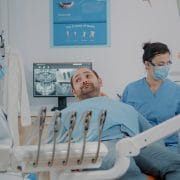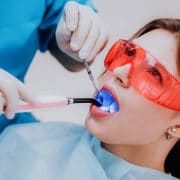Think You Have a Cavity? What to Know
Cavities are a common dental problem that people experience when they have poor oral hygiene and eat a lot of sugar. Cavities can cause pain and discomfort while eating, and if left untreated, a cavity can only get worse. If you have a cavity, it’s important to get a dental filling in Medina, OH, with your dentist at Evanko Dental Group of Medina. Here’s what you need to know about cavities and what you can do about them.
What Is a Cavity?
A cavity is a hole in your tooth enamel made by tooth decay. Cavities happen due to a combination of plaque buildup, poor oral hygiene habits, and a diet too rich in sugar. Cavities start as tiny holes but can get bigger over time.
What Are the Symptoms of Cavities?
If you have a dental cavity, you may not be able to tell. Not all cavities have symptoms, especially if the cavity is still small. In a case like this, the only way to find out that you have a cavity is by going to the dentist for your regular checkup. In a case like this, your dentist will diagnose the cavity and let you know the next steps.
If you do notice symptoms, they may include:
- Sudden tooth sensitivity to heat and cold
- Visible holes in the teeth
- Pain in the tooth when biting down or when drinking
- Discolorations and stains on the teeth
- Bad breath even after you brush your teeth
- Pain that occurs in the tooth randomly
What Should You Do If You Have a Cavity?
If you’re noticing symptoms of a cavity, seeing the dentist as soon as possible is important. You could have a cavity or another problem like an infection in your tooth (the symptoms of these problems can resemble one another).
If you have a cavity, your dentist can diagnose the problem and recommend next steps. Most likely, your dentist will recommend a filling for your tooth. At Evanko Dental Group of Medina, we offer composite (tooth-colored) and silver fillings.
Call your dentist in Medina, OH, today to learn more about getting a dental filling for your cavity. We’re here to help.












